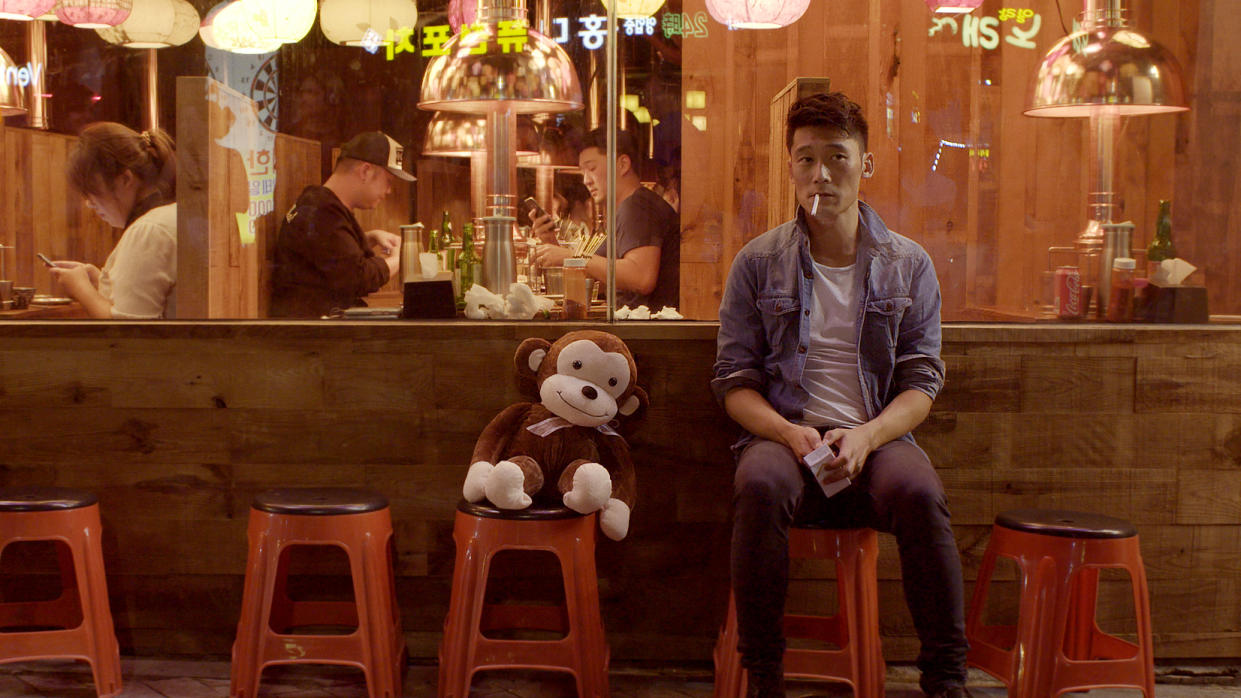Göteborg Film Review: ‘The Return’

Two Danish-Korean adoptees return to their native land to seek some answers about their birth parents in Danish helmer Malene Choi’s compelling, beautifully shot, docu-fiction hybrid “The Return.” The fictional framework permits a gripping, quasi-experimental approach to the cinematography, editing and sound design while still leaving room for impactful documentary scenes. Based on the filmmaker’s own experience and that of many others she interviewed, the film registers strongly as a provocative mood piece about loneliness and belonging. Choi, a talent to watch, can expect a bright future for her film on the festival circuit before it segues into specialized arthouse play and broadcast.
Thirtysomething Denmark-raised Karoline (Karoline Sofie Lee) and Thomas (handsome theater thesp Thomas Hwan, from Danish TV’s “Follow the Money,” extremely good in his first cinematic leading role) meet at Koroot, a Seoul guesthouse especially for returning Korean adoptees, where English is the lingua franca and the comfortable living room, dining room and kitchen serve as safe places to share experiences, problems and feelings. Choi intersperses the basics of the two Danes getting to know each other and the progress of their respective searches for their families with interviews in which either Karoline or Thomas ask the other residents about their meetings with their birth parents, their feelings about Korea and their evolving relationship with their adoptive families. Their replies are frank, personal and revealing.
The real-life multidisciplinary artist JooYoung Choi, who was raised in an American adoptive family, tells Karoline about finding her birth mother and her many trips to spend time with her. She also shares the backstory to her complex graphic art, set in a highly structured, imaginary land called the Cosmic Womb, heavily influenced by feelings of abandonment and rootlessness common to adoptees.
The testimony of another American-raised adoptee who found his birth family and is now living in Korea is even more poignant. He tells Thomas that when he departed Seoul after his first visit to the country, he felt as if he had “lost happiness.” He articulates the feelings of many of the others when he notes that for him, Korea felt like his place, his people, his food. Unfortunately, his decision to spend time living in Korea led to a brutal rupture with his adoptive family.
Many of the adoptees, especially those raised in the U.S., U.K. and Nordic countries, recount being bullied at school and singled out as different because their looks. Karoline, who seems to serve as a stand-in for the director, tells Thomas that her small-town adoptive parents didn’t understand her problems at school and never did anything about them. Meanwhile, Thomas remembers being told by other kids to “go back to where you came from” and had epithets hurled at him that had nothing to do with Korea.
When Karoline and Thomas visit the Holt adoption agency, the Korean pioneers in international adoptions, Karoline fails to receive much satisfaction from the extremely polite office manager with whom she meets. She’s better served by soft-spoken Chris Kim, the manager of Koroot, who accompanies her to Incheon city hospital and serves as her translator.
Later, Karoline provides support for Thomas, tagging along with him and an interpreter when he goes to meet his birth mother (Seong In-Ja). Choi’s camera closely frames the faces of the four as they sit in the mother’s tiny kitchen, consuming a homemade meal. The mother’s heart-breaking story is presumably similar to that of other moms who allowed their children to be adopted.
Choi, a prize-winning short documaker, lightens her heavy topic by including some moments of wry humor inspired by Karoline and Thomas’ lack of knowledge about Korean culture. She also makes the attractive, sometimes mysterious, visuals extremely evocative, none more so than an imagined shot of the adult Thomas lying next to his mother in bed. Also haunting, the images, editing and sound design of the pre-title sequence, which imply that the film will be a mystery … and in a certain sense, it is.
Like compatriot helmer Gustav Möller’s “The Guilty,” also supported by New Danish Screen, “The Return,” shot in only 15 days, is a triumph of high-concept, low-budget filmmaking that makes skillful use of all the elements of cinema. Standout tech credits include the cinematography of up-and-coming lenser Catherine Pattinama Coleman and the sound design of Anne Gry Friis Kristensen and Kevin Koch.
Related stories
Göteborg Film Review: 'Amateurs'
Recalling My Time as Ingmar Bergman and Jeanne Moreau's Go-Between
Amateurs' Tops the Goteborg Film Fest
Subscribe to Variety Newsletters and Email Alerts!

